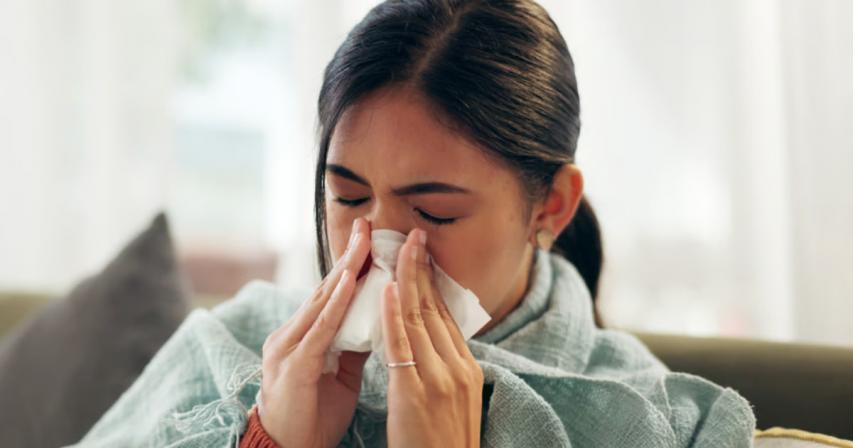UAE doctors caution against flu symptoms

UAE doctors are warning about persistent flu and respiratory syncytial virus (RSV) infections.
As Dr Rajesh Kumar Gupta, an internal medicine doctor at Burjeel Specialty Hospital in Sharjah, said, flu and RSV this year have arrived earlier and are active than previous years.
"That is because there are so many changes in weather across the world," said Dr Gupta. "People are getting sicker because immunity has changed, we have a bad diet, we don’t drink enough water, we don’t sleep or exercise. Others are allergies, pressure of life, air quality, vitamin deficiencies".
"Some of them are positive for influenza A and B, and unusual bacterial infections like Mycoplasma pneumonia," he said. Such commingled infections, Dr Gupta warned, might be longer in recovery – up to a month.
"Viral infections are going on for longer than ever – one or two weeks or more, sometimes four – because people have frequent exposures in social and work settings, because they are immune compromised and because they are older, especially if they have a co-morbidity," Dr Gupta said.
Cough, wheezing
Dr Mohamed Rafique, consultant pulmonologist and medical director at Prime Hospital in Dubai: "With the arrival of winter, there have been more flu cases. We’re also seeing RSV infections, and they’re not just happening to kids, but adults too.
Dr Rafique pointed to a spike in cases of post-viral bronchial hyper-reactivity, a kind of asthma that results in coughing and wheezing that may last a long time.
‘Post-viral cough, respiratory problems and fever are also some of the diseases that drive underlying inflammation in patients with asthma and COPD,’ Dr Rafique said.
How to stay protected
Dos:
-
Get flu vaccinations
-
Maintain a healthy lifestyle
-
Proper diet and stay hydrated
-
Regular exercise to boost immunity
-
Adequate rest and sleep
-
Maintain social distance
-
Masks should be worn so infection doesn’t spread.
-
Refrain from touching nose and mouth when sneezing or coughing.
-
Seeing doctor earlier to get treated.
Don’ts:
-
Touch and hug people who are ill Do not touch and hug sick people.
-
Avoid sharing foods when sick
-
Avoid visiting people and socialising
-
Avoid playing with animals
-
Don’t eat spicy or old food.
-
Avoid smoking and alcohol






Comments